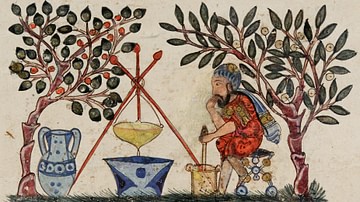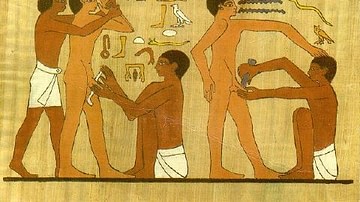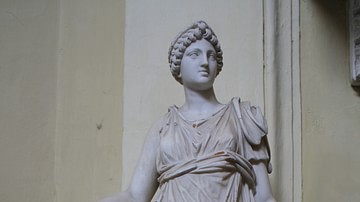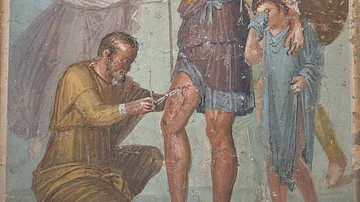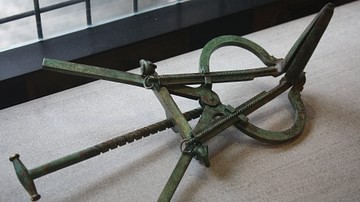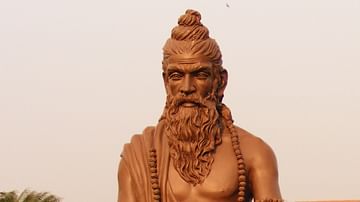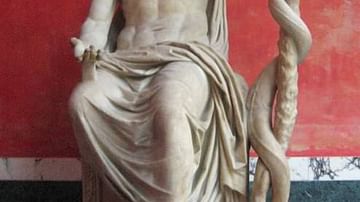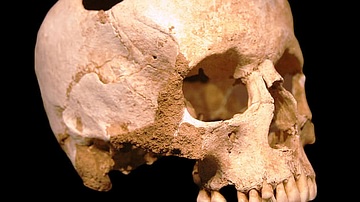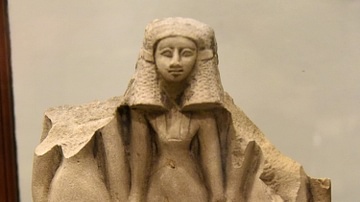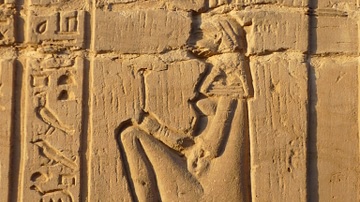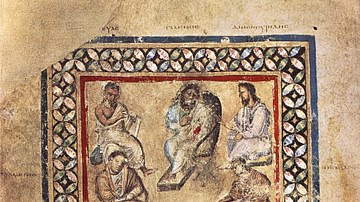In the ancient world the gods were often held responsible for one's good health and making offerings to them, reading out spells or wearing amulets was a common way to make sure illness stayed far away but there soon developed a whole body of professionals who believed they could help where the gods could not. Causes, symptoms and remedies were all examined and experimented with and even philosophers got in on the act by creating theories of what exactly made up the human body and why an imbalance might occur. Besides everyday illnesses, doctors treated war wounds and carried out major surgery such as trephination.
In this collection, we look at the views on health and medical practice in Mesopotamia, Egpyt, Greece and Rome. We also look at key figures such as the Greek god of medicine Asclepius and famous doctors like Hippocrates whose oath is still sworn today by doctors around the world.
Wounded soldiers were actually one of the best ways for a doctor to learn his trade and widen his knowledge of the human body and its internal workings. There was probably also less risk of the soldier causing problems if things went wrong, which could happen with private patients.
